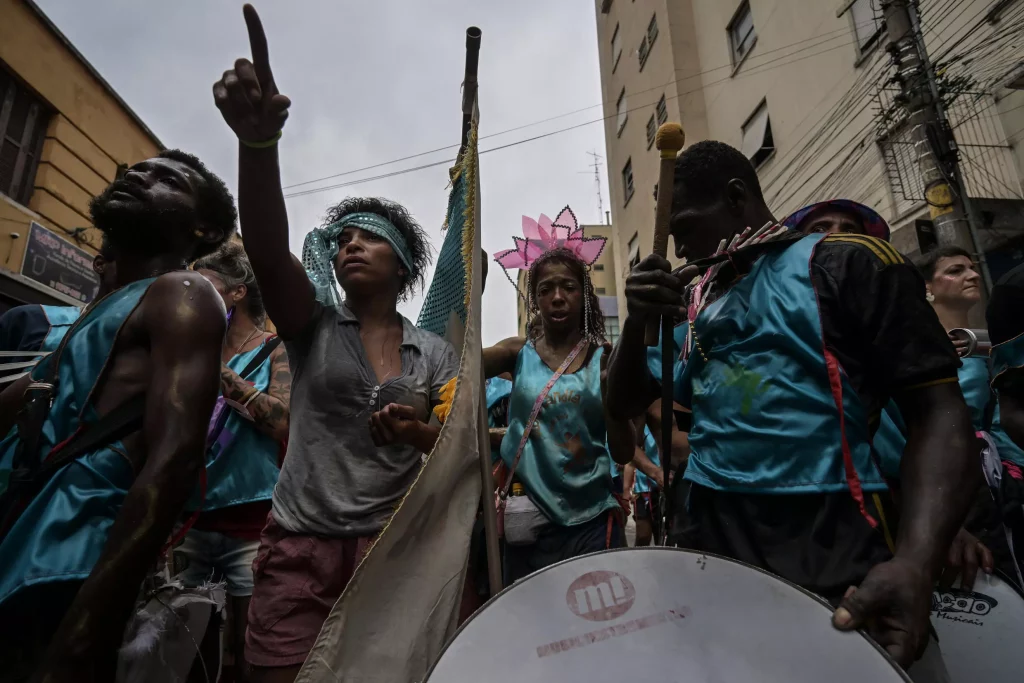Sao Paulo (AFP) – Emaciated Brazilian crack addicts danced to samba music in a rundown part of Sao Paulo as a very different kind of Carnival parade filled the street.
Brazil’s legendary street party, which draws people from around the world and is known for its glittering floats and dance troupes, begins February 9.
But parades in what is called the pre-Carnival period are taking place on weekends, and Claudio Rogerio, a drug user who is missing his two front teeth, toots on a whistle as he leads a drum and tambourine corps marching in one of these early processions.
This one has taken place every year since 2015 in a sad part of Brazil’s largest city called Cracolandia — Crackland — which is home to many crack addicts who live in the street.
The founder of the parade, a group called Blocolandia, has run the procession every year but it was Rogerio’s idea to add crack addict percussionists to the roving musical show.

“We are not just drug addicts. We are intelligent people who like music,” Rogerio, wearing a black baseball cap backward, told AFP during the parade Saturday.
Rogerio still uses crack but no longer lives in the street, as he did for years, residing instead in housing paid by a social welfare program.
With the Blocolandia parade he says it is like going back to his childhood in Vila Formosa, a Sao Paulo district known for its samba schools that take part in the much bigger Carnival spectacle.
Nearby in the parade stands a performer who calls herself MC Docinho, who smiles and sings. She recovered from crack addiction but did not want to sever her links with Cracolandia.
“Society thinks these people are dirty, that they are worth nothing. But I — I am clean today — I know what they are worth, their stories. And I absolutely want to be present to preserve this connection,” said this mother of five.
The neighborhood, often hit by police raids, remains under tight surveillance as police with rifles monitor the parade.
“Carnival is a great time to shatter taboos and show society that there are people who dance samba, who sing, who have talent to create language and who have their own stories,” said Laura Shdior, a psychologist who came to the parade.
“They are not the zombies that society thinks they are,” she said.


